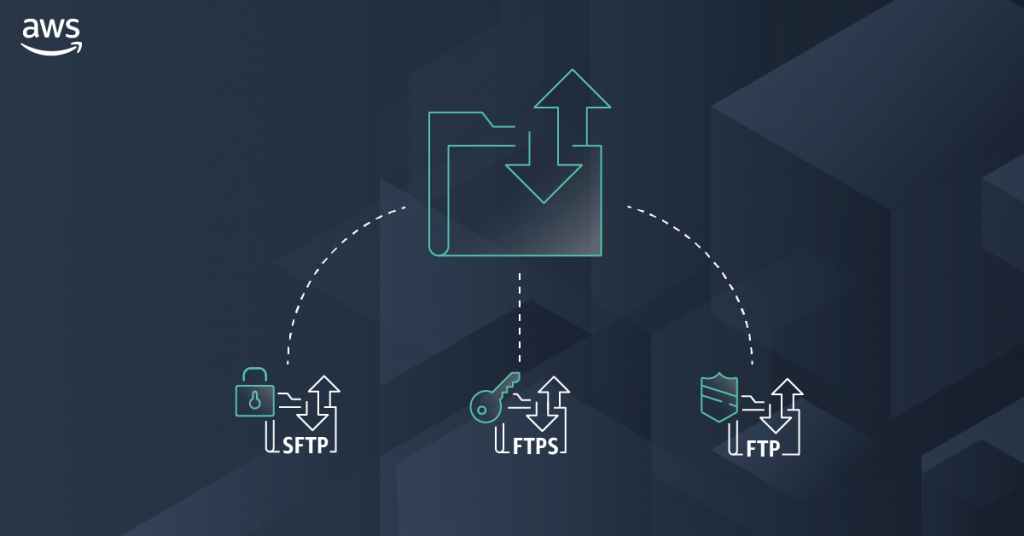AWS Storage Blog
Category: AWS Lambda
Easy-to-use Amazon EFS integrations with AWS Compute services
Every day AWS customers launch Amazon EC2 instances using the Launch Instance Wizard (LIW). When launching instances to host applications like content management systems, data science notebooks, database backups, media workflows, and code repositories, you create and attach shared file systems like Amazon EFS to your instances. In the past, creating and attaching new Amazon […]
Enable password authentication for AWS Transfer Family using AWS Secrets Manager (updated)
This blog post was published as an update to another blog post, “Enable password authentication for AWS Transfer for SFTP using AWS Secrets Manager.” Update (1/25/2023): The format used for the AWS Secrets Manager entry has been changed to aws/transfer/server-id/username. This brings the format in-line with the requirements for pre-defined managed workflow like PGP decryption, […]
Online Tech Talk September 25: Modernize your applications with containers, serverless, and Amazon EFS
Don’t miss our AWS Online Storage Tech Talk on September 25, where an AWS expert covers modernizing your applications with containers, serverless, and Amazon EFS. This Tech Talk is at 1:00 PM – 2:00 PM PT (4:00 PM – 5:00 PM ET). Modernizing applications with containers and serverless improves agility, so you can innovate faster, […]
Querying data without servers or databases using Amazon S3 Select
UPDATE (7/25/2024): Use Amazon Athena, S3 Object Lambda, or client-side filtering to query your data in Amazon S3. Learn more » In our time as Solutions Architects at AWS, we have supported all types of customers and use cases. We regularly hear the same feedback: instead of deploying and managing systems and infrastructure, customers want […]
Query Amazon S3 Analytics data with Amazon Athena
I recently had a customer explain that they were aware of the benefits of various Amazon S3 storage classes, like S3 Standard, S3 Infrequent-Access, and S3 One-Zone Infrequent-Access, but they were not sure which tiers and lifecycle rules to apply to optimize their storage. This customer, and others like them, have multiple buckets and various […]
Automating Amazon EBS volume resizing with AWS Step Functions and AWS Systems Manager
In active applications, it’s possible for an Amazon EC2 instance’s Amazon EBS volume utilization to reach provisioned capacity. Depending on the application in use, this creates the risk of a customer-impacting application outage when that provisioned capacity is exhausted. One solution is to design a failover mechanism into the application. However, this can be a […]
Using AWS SFTP logical directories to build a simple data distribution service
We launched the AWS Transfer for SFTP (AWS SFTP) service in November of 2018, and it has since been adopted by many organizations to enable secure SFTP access to data hosted in Amazon S3. At AWS, we are continuously iterating on our services, and many of our customers have told us that they would like […]
Transcoding video files with S3 Batch Operations
The ability to work quickly in bulk—to work smarter rather than harder—is vital for the practical storage management of modern video archives, which can easily be petabytes of data. S3 Batch Operations is an Amazon S3 feature that can perform actions like copying or tagging objects across millions or billions of objects with a single […]
Using Okta as an identity provider with AWS Transfer for SFTP
AWS Transfer for SFTP (AWS SFTP) is a fully managed service that enables you to move file transfer workloads to AWS when they use the Secure Shell File Transfer Protocol (SFTP). Enterprises and startups across a range of industries can use AWS SFTP without needing to modify applications or manage any SFTP servers. Data uploaded […]






